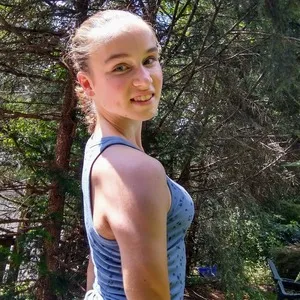Nia Lee is a culinary artist, wine educator, and community organizer who practices under the umbrella of Black Food Futurism. A former creative director for Netflix, she’s the founder of LA-based Stormè Supper Club and the distinguished Annenberg Civic Media Senior Fellow. Her work has been featured in Vogue, The Cut, LA Times, and more. We talked with Nia about Black Food Futurism, the role of food in community, and her advice for college students looking to build their own communities through food.
Spoon University: How do you define the work that you’re doing with Black Food Futurism?
Nia Lee: Black Food Futurism asks what happens when we combine traditional Black practices and rituals with our foodways and arts to create new communities. What happens when we put all those things together with the intention of bringing people together? That’s the umbrella of my practice, and under that umbrella, I’ve created Stormè Supper Club, a wine and supper club here in L.A. that centers Black and brown queer women, femmes, and gender expansive people. We meet quarterly and offer wine tastings, dinners, art talks, picnics, and the like. It’s become a really beautiful and tender community here in L.A.
I also offer experimental performance art centered dinners that are open to everybody, and explore a similar narrative of what happens when you combine Black foodways and art. I’ve been answering those questions through these dinners, and I’ve been exploring my own narrative, my own family’s history and ancestral legacy here in this country through food.
SU: Why do you think food is so important in building community?
NL: There’s nothing more intimate and special than breaking bread with somebody. Food is the great connector. It’s so beautiful to use food to create such a tender, loving, and sacred community in a world where it’s sometimes difficult to find people who share your multiple intersecting identities. All around the world, we seem to be slipping backwards in terms of progress towards Blackness and queerness. This year alone, there have been over 400 anti-LGBTQIA laws that have been proposed. Now more than ever it’s important to create these spaces so that we can all feel possible and safe and able to expand into our fullness and who we are.
SU: Do you have any advice for college students looking to build community through food?
NL: I actually got into food in college. I come from a foodie family, so food has always been in my mind’s eye. When I got to college I created an unofficial, probably not allowed, little dessert club out of my then partners dorm room. I was making these cupcakes and giving and selling them to people. The goal wasn’t to make money, just to create a delicious moment for my friends around campus. I also participated in my college’s cafeteria cooking competition, which was really fun.
In college, where resources are especially slim and everybody is kind of struggling to find their own way and balance so many things, it provides a really great opportunity to be intentional about creating those spaces for yourself. Whether it’s bringing all your friends together at a table in the cafeteria and having some intentional questions, a cafeteria supper club, or even just having snacks in your dorm’s lounge area and talking for hours. I encourage people to get creative with bringing people together through food. It doesn’t have to be a big fancy dinner like I’m doing. It could be as simple as sharing french fries with friends in the cafeteria.
SU: It’s really inspiring how you have found your passions and turned them into a unique and successful career. Do you have any advice for college students trying to find their own unique path?
NL: I always tell folks in college, just really do what makes you happy. I thought I wanted to be a lawyer or do public policy, and I started on that track. But I realized I just wasn’t interested in those classes. We only have one life to live, so I encourage folks to take the classes that really interest them and let their major emerge. The classes that really interested me were gender studies, Africana, and performance art. And those classes, and the degrees that I got, are the backbone of the work I’m doing now. It all comes together when you focus on centering your joy and your curiosity, and get positively obsessed with something.


